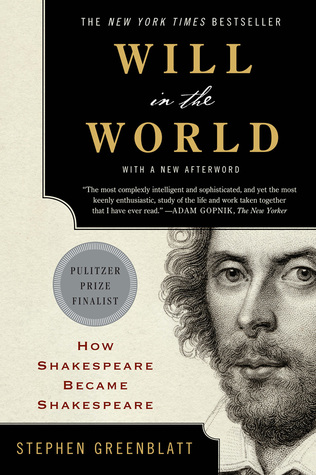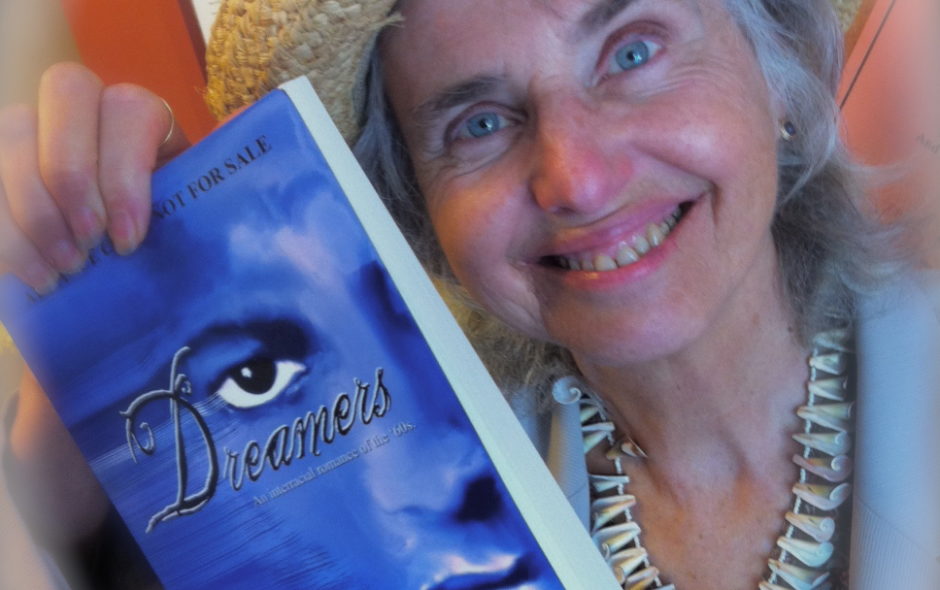You might think that a book about the most famous writer in the English language would be boring: trite, repetitious or full of pompous academic abstractions, especially if you researched and wrote your master’s thesis on “Murder and Honor in Hamlet and Othello” like I did at Hunter College. But you’d be wrong.
With impressive credentials and superior narrative ability, Stephen Greenblatt in Will in the World unearths and illuminates Shakespeare in the Elizabethan world in ways I could never before consider, especially given that facts about Shakespeare’s life are, according to the author, ”abundant but thin.” I couldn’t put the book down. The thing is, I was learning so much about myself, how to be a writer in my world.
Greenblatt writes: “We know all about the property Shakespeare bought and sold, the taxes he paid, the theatrical companies he worked for. We have his baptismal record, his marriage license and his last will and testament. But what he felt in his heart, what dreams he nurtured, what beliefs he himself had…..”.
What lover of words isn’t fascinated by the mysterious, brilliant William Shakespeare, aka “Will”? Who was Shakespeare really? I was hooked when Greenblatt sets up Shakespeare, at 18, marrying Anne Hathaway, age 26, in Stratford six months before their first child was born. What, if anything, did it mean that soon after–the exact date is vague like so much else–Will left it all to spend the rest of his life in rented rooms in London, two days ride away? Did he love her? Was he forced to marry her? Did he marry her for her money? Did she love him (But he was Shakespeare. How could she not?!)
Greenblatt speculates how Shakespeare may have been wanted for deer poaching, a 17th century theory. Was Shakespeare down and out, stealing venison and rabbits for food? With many credible details, Greenblatt explores and then discards this possibility with great authority, while being cautious about claiming any other hypotheses as certain either.
I was impressed by how masterfully Greenblatt lays out Shakespeare’s world—and mine too. Maybe Shakespeare left Stratford for the same reason I left my hometown, Pittsburgh, PA, to seek my fortune in the big world.
The artistic, political and religious intrigue is both detailed and gruesome, with beheadings at the bequest of Queen Elizabeth as common as parking tickets today. The victims, many of whom were Roman Catholics, are believable and very sympathetic. Greenblatt explores the possibility that Shakespeare may have been a Catholic too. That could explain the secrecy around his life. After all, it was dangerous to be Catholic in Elizabethan England.
Then there’s the mystery of the love sonnets, seemingly addressed to a man, but who? And did Shakespeare actually write the sonnets? Ah, but Greenblatt shows us how we moderns no longer understand the game of sonnet-making, so popular in Shakespeare’s world, where the trick was to be naked while revealing nothing, and tell revealing secrets to only a few chosen intimates.
So much is speculation! Did Shakespeare even write those plays or was it Marlowe for that matter? Was he a fraud as the feature movie, Anonymous (2011), claims? No, Stephen Greenblatt doesn’t buy that theory.
What really kept me reading Will in the World was that I felt supported and encouraged by Shakespeare as a writer in the world. Greenblatt convinced me to identify with this ”amazing success story,” of a bright young man from the provinces who took on the hard, yet exciting game of writing great plays for a popular audience in a tumultuous, changing, exploding world.
I might have guessed that Shakespeare too had problems I have as a writer: daunting competition from establishment writers (e.g., Marlowe), lack of funds, absence of entitlement, spotty, non-existent publication, pressing family responsibilities, in fact, “an upstart crow” in the literary world as the contemporary playwright Robert Greene called him. But that’s beside the point as Will in the world pressed on—and succeeded. Not just for his time but for all time.
Greenblatt’s astute analysis of the playwright’s characters, so modern in their angst, confusion and daunting dreams, illuminates Shakespeare’s own evolving understanding of the world. Will in the World challenges me to understand our world now, four hundred years later, through my writing.
 Will in the World: How Shakespeare Became Shakespeare
Will in the World: How Shakespeare Became Shakespeare
by Stephen Greenblatt
My rating: 5 of 5 stars
View all my reviews.


